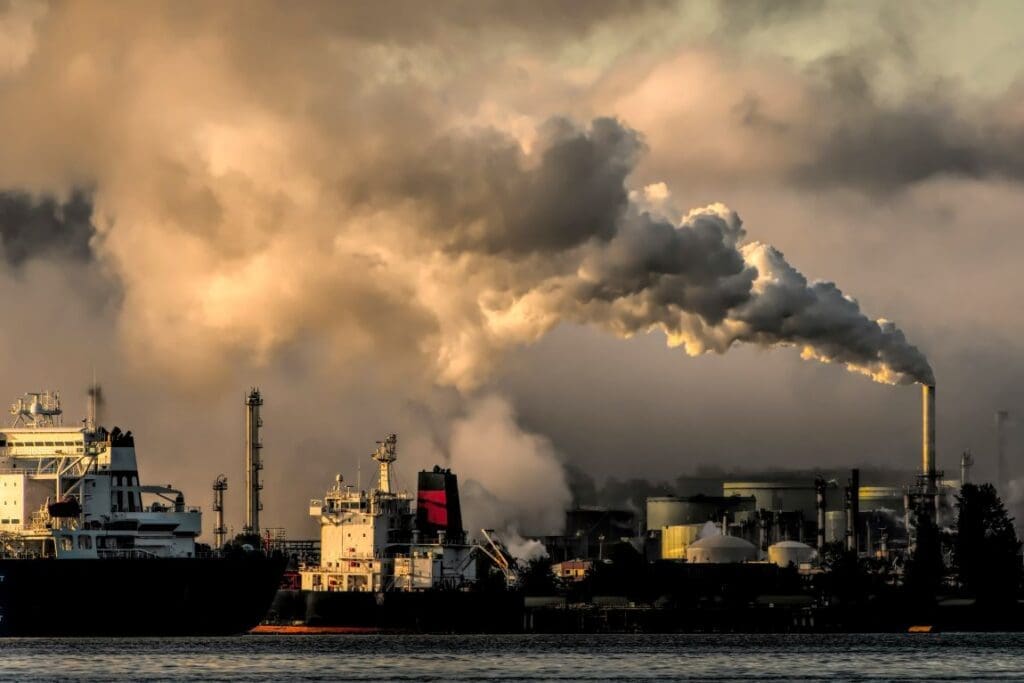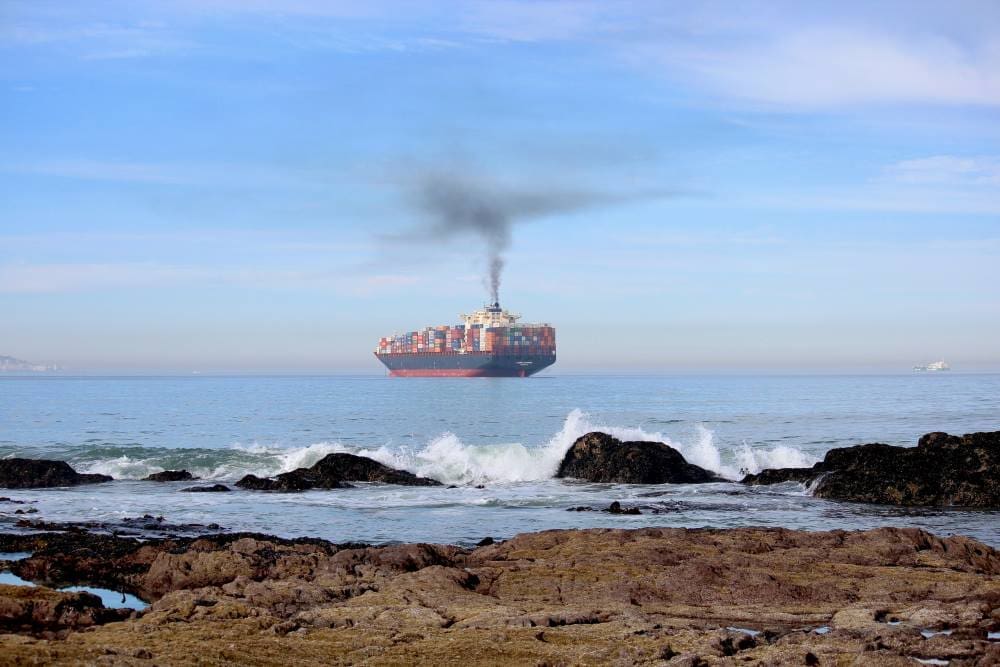London, United Kingdom | AFP
A decisive week for decarbonising global shipping began on Monday at an International Maritime Organization (IMO) meeting in London, against a backdrop of trade tensions that could make reaching a consensus difficult.
The IMO had vowed to adopt a “carbon price” and technical recommendations to reduce greenhouse gas emissions by shipping in a “just and equitable” way in a 2023 climate strategy.
On the table at the week-long meeting in London are an ambitious carbon tax measure, a carbon credit scheme and a re-evaluation of the maritime sector’s fuel standard system.
But the talks come the week after US President Donald Trump unveiled a sweeping range of global tariffs, particularly against Asia and the European Union, at the risk of battering the global economy.
“It’s unfortunate that… we are in this environment where multilateralism is questioned, where globalisation is deemed to have failed,” said Fiji’s transport minister Ro Filipe Tuisawau.
According to Tuisawau, the political and economic climate is unfavourable to an ambitious emissions-reduction agreement for international shipping.
Instead, countries are moving “towards more self-interest rather than a global interest”, he said, speaking at a press conference on the sidelines of the IMO’s Marine Environment Protection Committee.
Tensions could escalate further, with China already announcing significant duties on all imports of American goods.

‘Necessary compromise’
Members of the IMO which are firmly opposed to a carbon tax, including Brazil and China, are worried about a hike in costs of exported goods and are unwilling to sacrifice growth, especially amid trade uncertainties.
However, at Monday’s gathering of 1,200 representatives from 176 countries, IMO members underlined the desire to reach a consensus by Friday.
“I have no doubt you will achieve the necessary compromise,” said IMO Secretary-General Arsenio Dominguez, addressing members.
Currently, discussions are moving towards a carbon credit system rather than the greenhouse gas levy supported by Pacific and Caribbean island states, Dominguez told the press.
The carbon credit system, supported in particular by the European Union, could well be the compromise, but there is as yet no consensus on how it would work.
Such a system would allow companies or countries to buy and sell credits representing the right to emit a certain amount of carbon dioxide.
However the idea behind carbon credits has taken a major hit as scientists have shown claims of reduced emissions to be hugely overestimated — or even entirely untrue.
pml/ode/aks/sbk
© Agence France-Presse
Article Source:
Press Release/Material by AFP
Featured image credit: Hennie Stander | Unsplash




